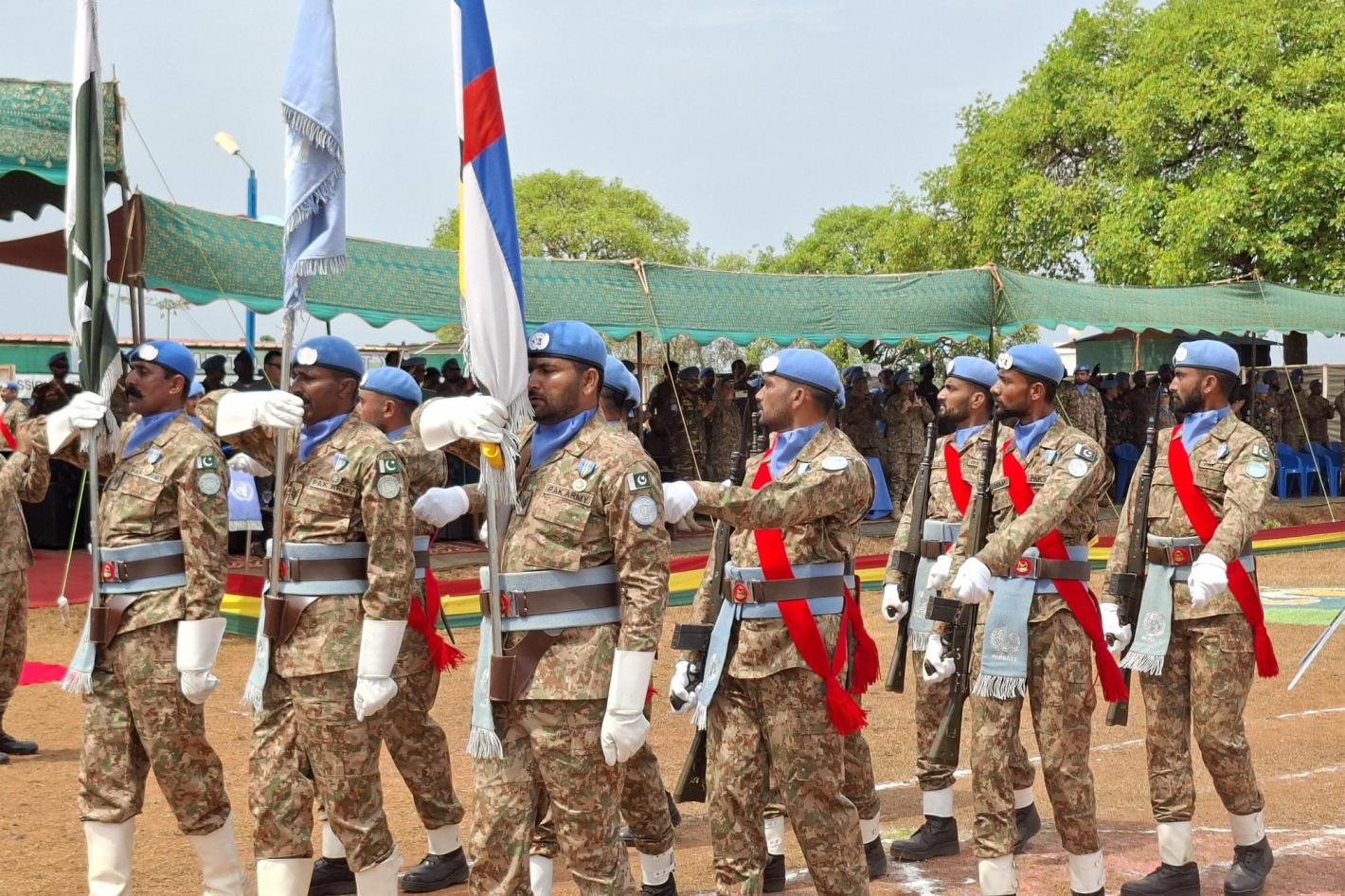For the first time since their designation in late 2017 as Field Victims’ Rights Advocates (FVRAs) to serve in the four countries from which most allegations of sexual exploitation and abuse had been reported – Central African Republic, Democratic Republic of the Congo, Haiti and South Sudan - , the FVRAs and the global United Nations Victims’ Rights Advocate (VRA) met together in Bangui, Central African Republic from 19 to 22 February 2019 to assess their achievements and the challenges that they face.
Designation of the FVRAs and the appointment of the VRA formed a central part of the Secretary-General’s strategy set out in his report entitled Special Measures from Sexual Exploitation and Abuse: a new approach (A/71/818) which called for the rights of victims to be placed at the heart of the UN’s action on sexual exploitation and abuse (SEA).
The FVRAs’ role is to work across the UN system to advocate for the adoption of a victim-centered and rights-based approach to preventing and responding to sexual exploitation and abuse perpetrated by United Nations personnel - uniformed and civilian, international and national staff, including those employed by agencies, funds and programmes - as well as by non-UN international forces deployed under a Security Council mandate. Each FVRA is the principal point of contact for victims of sexual exploitation and abuse.
During the meeting the FVRAs underlined the importance of responding to victims’ immediate and longer-term needs, including those of children born as a result of sexual exploitation and abuse. Jane Connors the Victims’ Rights Advocate pointed out that “responding to the immediate needs of victims has the potential to transform them into survivors who are empowered to cooperate with the United Nations in its efforts to realize accountability.” They also agreed that providing livelihood and educational opportunities to the most vulnerable could prevent them from becoming victims.
The necessity of ensuring quick access to funds to address victims’ immediate needs was underscored, as was the need for more resources to support the FVRAs perform their crucial function. Challenges raised included maintaining contact with all victims, especially in insecure environments; and ensuring that the in-country approach towards preventing and responding to sexual exploitation and abuse is joined up and strongly coordinated.
ASG Connors made clear that “although much remains to be done, much has been achieved” and added: “It is pleasing to see that victims’ rights are increasingly being incorporated in work to address sexual exploitation and abuse across our complex system. These wrongs are no longer considered primarily as reputational risks for the Organization, but as conduct which harms individuals, families and communities”.
The initial results of the pilot mapping of victims’ rights approaches and services available to provide legal, medical, psycho-social, safety, shelter and livelihood support for victims in eight priority countries, including those with FVRAs initiated by the Office of the Victims’ Rights Advocate was a particular point of discussion. The VRA considers that the mapping will provide baseline information, including gaps in support and be a key enabler to improve the quality and timeliness of assistance to victims.
The meeting was hosted by the UN Multidimensional Integrated Stabilization Mission in the Central African Republic (MINUSCA). Other participants included human rights and conduct and discipline officers, the senior women’s protection adviser, staff from the Office of the Deputy Special Representative of the Secretary-General / Resident Coordinator / Humanitarian Coordinator for Central African Republic, the Office of the Special Coordinator on Preventing Sexual Exploitation and Abuse, the Office of Internal Oversight Services and representatives of UN agencies, funds and programmes.
The VRA and the Central African Republic FVRA also met with officials from the National Commission on Human Rights and Fundamental Liberties to discuss its role in realizing accountability for victims.






